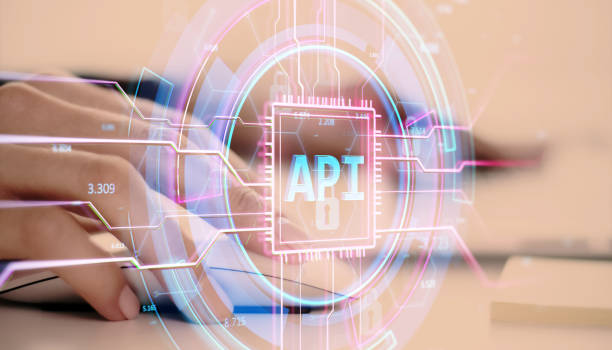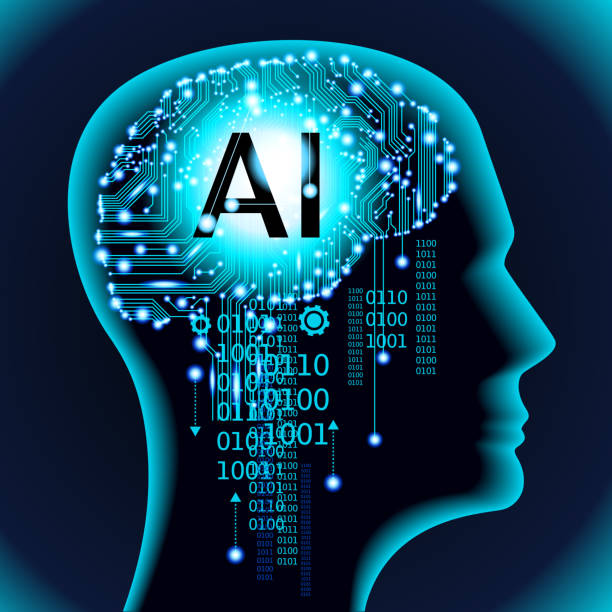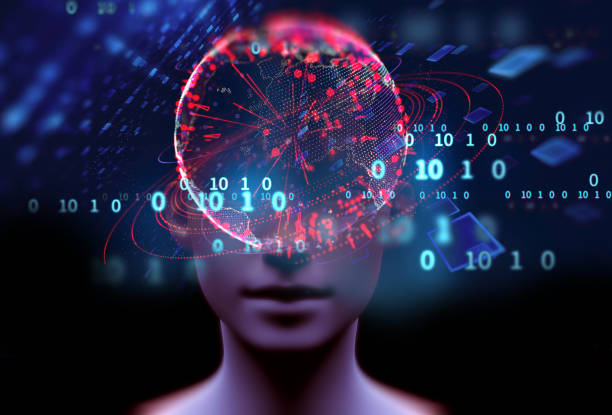What is Artificial Intelligence and Why Does It Matter? Definition, History, and Applications

What is Artificial Intelligence and Why Does It Matter? Definition, History, and Applications
#Artificial_Intelligence (AI) is a branch of computer science that deals with building machines that can perform tasks that typically require human intelligence.
These tasks include learning, problem-solving, decision-making, natural language understanding, and pattern recognition.
In short, the goal of AI is to build systems that can think and act like humans. The importance of artificial intelligence is rapidly increasing in today’s world.
From self-driving cars to virtual assistants and medical diagnosis, AI is changing our lives in many ways.
AI’s ability to process large amounts of data and identify patterns that humans cannot see makes it a valuable tool for businesses, governments, and other organizations. For example, you can study more in the field of Wikipedia artificial intelligence.
AI is currently used in various fields such as healthcare, finance, transportation, and manufacturing, and is expected to play an even more important role in the future.
Did you know that 94% of users’ first impressions of a business are related to its website design? With professional corporate website design by **Rasaweb**, turn this first impression into an opportunity for growth.
✅ Attract more customers and increase sales
✅ Create credibility and trust in the eyes of the audience⚡ Get free website design consultation!
Types of Artificial Intelligence From Narrow AI to General AI

Types of Artificial Intelligence From Narrow AI to General AI
Artificial intelligence can be divided into different categories based on capabilities and the type of tasks it can perform.
The two main categories are Narrow AI and General AI.
Narrow AI, also known as weak AI, is designed to perform a specific task.
This type of AI performs very well in tasks such as facial recognition, language translation, and computer games, but cannot perform other tasks for which it is not designed.
Most AI systems used today are of this type. General AI, also known as strong AI, is a type of AI that can perform any task that a human can perform.
This type of AI is still under development and there is no complete General AI system.
Building General AI is one of the biggest challenges facing AI researchers. AI in marketing is also very important, to learn more, watch Aparat AI in Marketing.
In addition, there is also Super AI, which goes beyond human intelligence and can potentially solve more complex problems and create greater innovations.
Machine Learning and Deep Learning Two Key Approaches in Artificial Intelligence

Machine Learning and Deep Learning Two Key Approaches in Artificial Intelligence
Machine Learning and Deep Learning are two key approaches in the field of artificial intelligence that allow systems to learn from data without explicit programming.
Machine learning is a subset of artificial intelligence that focuses on developing algorithms that allow computers to learn from data.
These algorithms can identify patterns, make predictions, and make decisions, all without direct human intervention.
Machine learning is used in various fields such as spam detection, product recommendations, and fraud detection. Deep learning is a subset of machine learning that uses artificial neural networks with multiple layers to analyze data.
These networks are inspired by the structure of the human brain and can identify more complex patterns in data.
Deep learning is very effective in areas such as image recognition, natural language processing, and speech recognition. Artificial intelligence is advancing in every field.
For more information, you can watch AI on YouTube.
The main difference between machine learning and deep learning is that deep learning requires more data and more computing power, but can provide more accurate results.
In contrast, machine learning can work with less data and less computing power, but may be less accurate.
| Feature | Machine Learning | Deep Learning |
|---|---|---|
| Complexity | Simpler | More Complex |
| Data Volume | Less | More |
| Computing Power | Less | More |
| Applications | Spam detection, product recommendations | Image recognition, natural language processing |
Applications of Artificial Intelligence in Everyday Life Examples of the Impact of Artificial Intelligence in Various Industries

Applications of Artificial Intelligence in Everyday Life Examples of the Impact of Artificial Intelligence in Various Industries
Artificial intelligence is increasingly present in our daily lives and has had a significant impact on various industries.
In the field of healthcare, artificial intelligence helps in diagnosing diseases, developing drugs, and providing personalized care to patients.
For example, AI systems can analyze medical images and identify early signs of cancer.
In the financial industry, AI is used to detect fraud, manage risk, and provide financial advice to customers.
AI algorithms can review bank transactions and identify suspicious activities. In the transportation industry, self-driving cars are a prime example of the application of artificial intelligence.
These cars use sensors and AI algorithms to drive without human intervention. Artificial intelligence has also created many transformations in the field of education.
AI systems can help teachers provide personalized education to students and provide them with instant feedback.
Virtual assistants such as Siri and Alexa also use AI to answer user questions and perform various tasks. Artificial intelligence has also been very effective in agriculture, to learn more, read AI in Agriculture.
Overall, artificial intelligence is changing the way we live and work, and is expected to play an even more important role in the future.
Do you know that a weak corporate website loses many opportunities every day? With professional corporate website design by Rasaweb, solve this problem forever!
✅ Create a powerful and reliable image of your brand
✅ Targeted attraction of new customers and increased sales
⚡ [Get free website design consultation]
Challenges and Concerns of Artificial Intelligence Ethical Issues, Discrimination, and Security

Challenges and Concerns of Artificial Intelligence Ethical Issues, Discrimination, and Security
Along with many advantages, artificial intelligence also brings many challenges and concerns.
One of the most important of these challenges is the ethical issues related to the use of artificial intelligence.
For example, the automated decisions of AI systems may lead to discriminatory results, especially if the data on which the system is trained contains biases.
This issue can be problematic in areas such as hiring, lending, and criminal justice. Another concern is the issue of AI security.
AI systems may be targeted by cyber attacks and hacked, which can lead to serious consequences.
For example, hacking a self-driving car can lead to an accident and injury.
Also, the use of artificial intelligence in military and weapons systems has raised concerns about automated warfare and the loss of human control over weapons. Another challenge of artificial intelligence is the issue of job loss due to automation. Artificial intelligence can automate many tasks that were previously performed by humans, which can lead to a reduction in job opportunities.
To address this challenge, it is necessary to provide appropriate training and retraining programs to help people learn new skills and adapt to changes in the labor market. Artificial intelligence (AI), despite its many potentials, also brings challenges and concerns that should be given special attention.
To examine these issues, you can refer to Euronews Persian Artificial Intelligence.
The Future of Artificial Intelligence What Can We Expect?

The Future of Artificial Intelligence What Can We Expect?
The future of artificial intelligence is very bright and full of potential.
It is expected that in the future, artificial intelligence will play a more important role in our lives and create significant transformations in various industries.
In the field of healthcare, artificial intelligence can help diagnose diseases more accurately and quickly and provide more personalized treatments.
In the transportation industry, self-driving cars can help reduce accidents and improve traffic flow.
In the field of education, AI systems can help teachers provide personalized education to students and provide them with instant feedback.
One of the important trends in artificial intelligence is the development of Explainable AI.
This type of artificial intelligence allows users to understand why an AI system has made a particular decision.
This helps to increase user trust in AI systems and their wider acceptance. Another trend that is emerging is the development of Ethical AI.
This approach focuses on developing AI systems that operate in accordance with ethical principles and prevent discrimination and harm to individuals. Given the high rate of AI progress, it is difficult to accurately predict its future.
However, it is clear that artificial intelligence will become one of the most important technologies of the present century and will have profound effects on our lives. Artificial intelligence with a bright future can have positive effects on our lives, to better understand this issue you can study AI Ted
How to Learn Artificial Intelligence? Educational Resources and Learning Paths

How to Learn Artificial Intelligence? Educational Resources and Learning Paths
Learning artificial intelligence can be an exciting and rewarding journey.
Fortunately, there are many educational resources and learning paths for people with different levels of knowledge and experience.
If you are a beginner, you can start with introductory online courses that teach the basic concepts of artificial intelligence, machine learning, and deep learning.
Websites like Coursera, Udemy, and Edx offer many courses in this field. Also, there are many books in the field of artificial intelligence that can help you understand the concepts more deeply.
Some of the famous books include “Artificial Intelligence: A Modern Approach” and “Deep Learning” by Ian Goodfellow. Once you have learned the basic concepts, you can move on to practical projects.
Doing projects helps you to apply your knowledge in practice and strengthen your skills.
You can do simple projects like image recognition or stock price prediction.
If you want to specialize in a specific area of artificial intelligence, you can take more advanced courses and more complex projects.
Also, you can attend AI conferences and workshops to learn about the latest advances in this field and connect with other experts. For more information, you can read Maktabkhooneh AI.
Remember that learning AI is an ongoing process.
You should always be learning and updating your knowledge so that you can benefit from the latest advances in this field.
| Educational Resource | Type | Description |
|---|---|---|
| Coursera | Online Courses | Offers introductory and advanced courses in the field of artificial intelligence |
| Udemy | Online Courses | Offers a variety of courses in the field of artificial intelligence with different prices |
| Edx | Online Courses | Offers university courses in the field of artificial intelligence |
| Artificial Intelligence: A Modern Approach Book | Book | Comprehensive reference in the field of artificial intelligence |
Artificial Intelligence Tools and Libraries Python, TensorFlow, PyTorch, and More

Artificial Intelligence Tools and Libraries Python, TensorFlow, PyTorch, and More
For developing AI systems, there are many tools and libraries that help developers code and train AI models more efficiently.
One of the most popular programming languages for artificial intelligence is Python.
Python is the first choice of many developers due to its simplicity, readability, and the existence of powerful AI libraries. TensorFlow and PyTorch are two popular libraries for deep learning.
TensorFlow is developed by Google and is used in many industrial projects due to its scalability and high performance.
PyTorch is developed by Facebook and is used in many research projects due to its flexibility and ease of use.
In addition to these two libraries, there are other libraries such as Scikit-learn that are used for more traditional machine learning.
Scikit-learn offers various tools for classification, regression, clustering, and dimensionality reduction. Other tools such as Keras are also available, which act as a user interface for TensorFlow and PyTorch and make it easier to develop deep learning models. Using these tools and libraries, developers can quickly and easily develop #AI systems and solve complex problems. For more information about AI tools and libraries, you can visit the official websites of these tools and libraries.
Remember that choosing the right tool depends on the type of project and your needs.
For example, you can refer to Python AI.
Does your current website display your brand’s credibility as it should? Or does it scare away potential customers?
Rasaweb, with years of experience in designing professional corporate websites, is your comprehensive solution.
✅ A modern, beautiful website that matches your brand identity
✅ Significant increase in lead and new customer acquisition
⚡ Contact Rasaweb now to get a free corporate website design consultation!
Key Concepts in Artificial Intelligence Algorithms, Neural Networks, and Data

Key Concepts in Artificial Intelligence Algorithms, Neural Networks, and Data
To understand artificial intelligence more deeply, it is necessary to become familiar with its key concepts.
Algorithms are a set of instructions that tell the computer how to solve a problem.
In AI, algorithms are used to learn from data, recognize patterns, and make decisions.
There are different types of algorithms, including classification, regression, clustering, and reinforcement learning algorithms. Neural Networks are computational models that are inspired by the structure of the human brain.
These networks consist of multiple layers of nodes (neurons) that are interconnected.
Neural networks can learn complex patterns in data and are very effective in areas such as image recognition, natural language processing, and speech recognition. Data is the beating heart of artificial intelligence.
AI systems need a large amount of data to learn and improve their performance.
The quality of data is also very important.
Clean, accurate, and relevant data can help AI systems deliver better results.
In order for #AI to work properly, it needs a series of strong data. Understanding these key concepts can help you better understand how AI systems work and develop more effective AI systems.
These concepts are the basis of many AI applications in today’s world.
For more information, refer to ai articles
Getting Started with Artificial Intelligence Small Projects and Practical Steps

Getting Started with Artificial Intelligence Small Projects and Practical Steps
If you want to work practically with AI, it is better to start with small and simple projects.
These projects will help you learn the basic concepts and strengthen your skills.
A simple project can be recognizing handwritten numbers using the Scikit-learn library.
For this, you can use the MNIST dataset, which contains images of handwritten numbers.
Another project you can do is predicting stock prices using historical data.
For this, you can use libraries like Pandas and Scikit-learn. When doing projects, it is important to follow these practical steps
1.
Define the problem.
First, you need to define the problem that you want to solve with AI.
2.
Collect data.
Then you need to collect the data needed to train the AI model.
3.
Prepare the data.
Clean and prepare the data so that it is suitable for training the model.
4.
Select the model.
Choose the model that is suitable for solving your problem.
5.
Train the model.
Train the model using the collected data.
6.
Evaluate the model.
Evaluate the performance of the model and improve it if necessary. Artificial intelligence is growing and flourishing.
By following these practical steps and doing small projects, you can gradually strengthen your skills in AI and move on to more complex projects.
To fully review the projects, you can see the AI projects.
Remember that practice and experience are the keys to success in AI.
FAQ
| Question | Answer |
|---|---|
| What is the definition of Artificial Intelligence (AI)? | It is a field in computer science that aims to create intelligent machines that can think, learn, solve problems, and make decisions like humans. |
| Mention some common AI applications. | Includes self-driving cars, voice assistants (such as Siri and Alexa), recommendation systems (such as Netflix and Amazon), facial recognition, and medical diagnosis. |
| What is the difference between Narrow AI (ANI) and General AI (AGI)? | Narrow AI specializes in a single, specific task, while General AI possesses human intellectual ability to perform any cognitive task. |
| What is Machine Learning and how does it relate to AI? | Machine learning is a branch of artificial intelligence that focuses on developing algorithms that allow systems to learn from data without explicit programming. |
| What are Artificial Neural Networks? | They are computational models inspired by the structure and function of the human brain, and are used in deep learning to process data and discover complex patterns. |
| Mention some ethical challenges related to AI. | Includes privacy issues, bias in data and algorithms, job loss, and liability in the event of errors or unfair decisions. |
| What is Natural Language Processing (NLP)? | It is a branch of AI that focuses on enabling computers to understand, interpret, and generate human language in a useful and interactive way. |
| How can AI affect the labor market? | It can lead to the automation of some routine tasks, requiring retraining of workers and creating new jobs in the areas of design, development, and maintenance of AI systems. |
| What is Computer Vision? | It is a field in AI that enables computers to “see,” understand, and interpret images and videos in the same way that humans do, enabling them to recognize objects and faces. |
| What is the importance of data in developing AI systems? | Data is the fuel that feeds AI systems, especially in machine learning. The quality and quantity of data significantly affect the accuracy and performance of models and their ability to learn and make correct decisions. |
Other services of Rasa Web Advertising Agency in the field of advertising
Smart SEO: A fast and efficient solution to increase website visits with a focus on attractive user interface design.
Smart Social Media: An exclusive service to grow sales based on a SEO-focused content strategy.
Smart Marketing Automation: A new service to increase customer acquisition through a SEO-focused content strategy.
Smart Sales Automation: A new service to increase sales through marketing automation.
Smart Social Media: Transform website visits with the help of dedicated programming.
And more than hundreds of other services in the field of internet advertising, advertising consulting, and organizational solutions
Internet Advertising | Advertising Strategy | Reportage Ad
Resources
What is Artificial Intelligence and What Are Its Applications?
,What is Artificial Intelligence?
,Introductory Artificial Intelligence Training – Special for the Job Market
,What is Artificial Intelligence?
? In today’s competitive world, a strong online presence is the key to success. Rasa Web Digital Marketing Agency accompanies your business on the path to growth and excellence by offering comprehensive and innovative solutions, including professional website design and targeted marketing strategies.
📍 Tehran, Mirdamad Street, next to Central Bank, Kazerun Jonobi Alley, Ramin Alley No. 6




